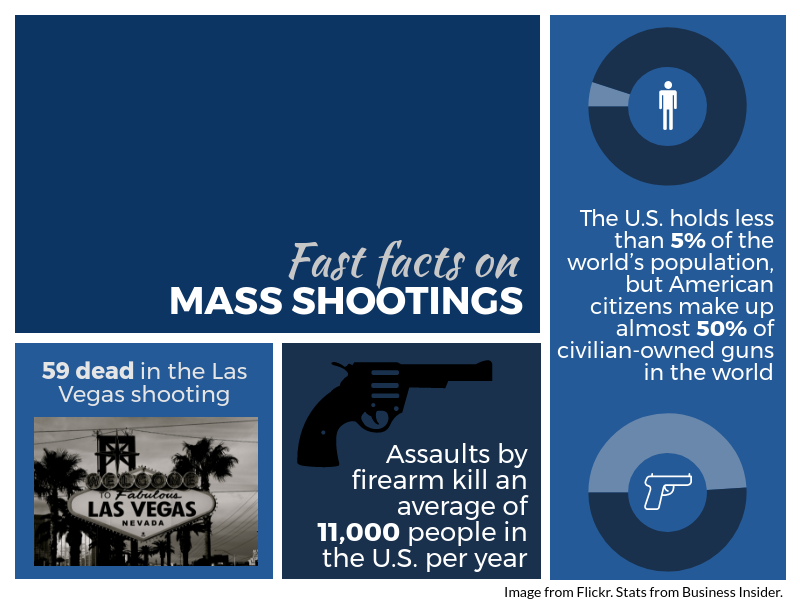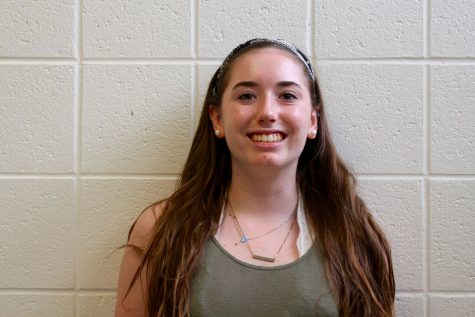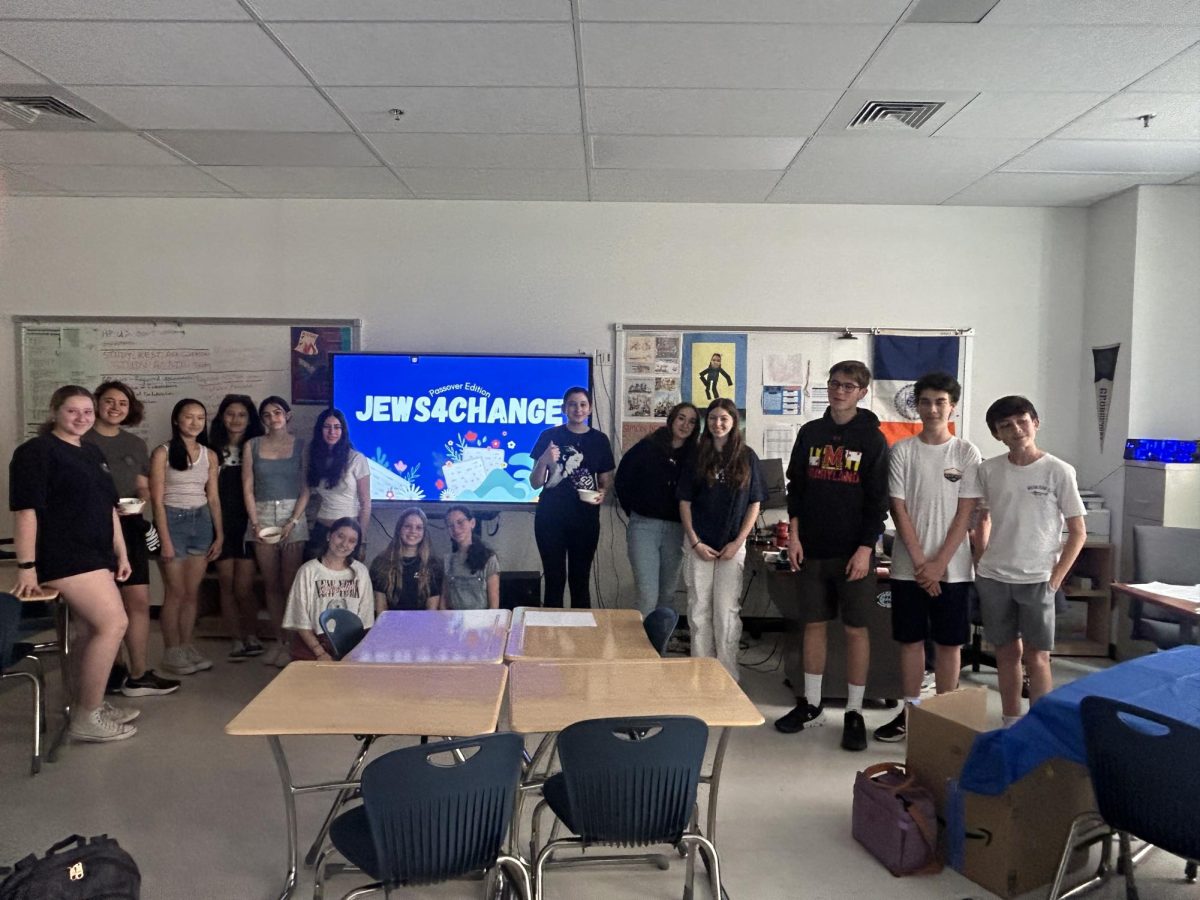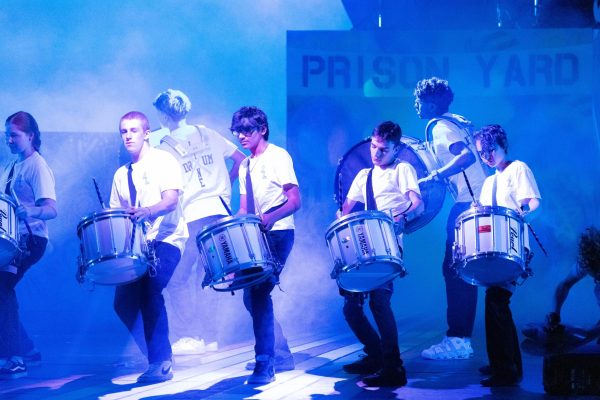Mass shootings: yes, we still need to treat them as tragedies
February 15, 2018
Editor’s note (2/15/18): Each time a mass shooting occurs, The Black & White’s online staff discusses how we want to react. These discussions have become painfully routine and terrifyingly unavoidable. The tragic and alarming fact is that there will be more mass shootings, and there’s frustratingly little we can do to prevent that. We don’t know what to do anymore. We call on those in positions of power to address this.
Last Monday, my alarm blared at 7 a.m. As I rolled over to silence it, I checked what notifications I’d received overnight, scrolling through a series of daily alerts: Snapchats from friends, teachers posting assignments on Google Classroom and a poll in a Facebook group. But one notification from the New York Times stood out: “Death toll from the shooting in Las Vegas rose above 50, police said, making it one of the deadliest mass shootings in U.S. history.”
I immediately texted my closest friends, “Did you hear about Las Vegas? Check the news, there’s been a mass shooting.” The majority of them responded something along the lines of, “Yeah it’s so sad. What was the Spanish homework?”
I sat down in my first period, convinced that the teacher would at least reference the horrific event. Instead, she said, “Take out your homework from last night.” Maybe she hadn’t heard. But as the day progressed, each of my classes passed with no mention of the tragedy.
To be clear, I’m not claiming that my friends or teachers are ignorant or unsympathetic. I simply find it disturbing that we as a society now accept mass shootings as a day-to-day reality, unworthy of mention.
In 2012, a shooter entered Sandy Hook Elementary School in Newtown, Connecticut, and killed 26 children and teachers. Like many current high school students, that’s the first mass shooting I remember. I vividly recall getting into my dad’s car after school that day with no idea what had happened. As we began the usual drive to gymnastics practice, I chattered on about my day for about five minutes, until we stopped at a red light and my dad cut me short.
“Elea, something very, very tragic happened while you were at school today,” he began, recounting the incident as I stared blankly out the window, too lost in thought and terror to even move.
Yet last Monday morning, when I woke up to the news that the events in Las Vegas had resulted in almost twice the number of fatalities, I rolled out of bed minutes later and went about my usual routine.
The issue isn’t that Americans don’t care about such tragedies: we all acknowledge their horror. But many of us, myself included, only do so for a few moments until moving on to the next activity. Mass shootings have been so normalized in our country that we continue to grow more desensitized to them with each tragedy.
Sandy Hook was the shooting we swore would be the last; the final push that lawmakers needed to institute stricter gun control laws. But since the incident, there have been 1,518 mass shootings in the U.S, meaning a shooting involving four or more casualties, Vox.com reported. Besides a few standouts, such as the Pulse Nightclub shooting in June 2016, we quickly dismiss most of these incidents as sad but inconsequential tragedies—and that’s assuming national media even reports on the atrocity.
Despite examples of gun control’s success in reducing death tolls, mass shootings have become so common in the U.S. that Americans don’t truly see the horror in each incident—the horror that, in other countries, has spurred true reform.
Around the world, stricter gun control has proved effective in reducing mass shootings. In 1996, Martin Bryant killed 35 people in the worst mass shooting in Australian history. Australians mourned in the months that followed, just as Americans did when mass shootings were still an unusual occurrence. But unlike Americans, Australians demanded action in response to the incident. The government tightened gun control laws, and the country hasn’t witnessed a single large-scale shooting since. Had citizens not been widely aware of the scale and details of the tragedy, they likely wouldn’t have demanded the change that has since saved hundreds of lives.
Despite examples of gun control’s success in reducing death tolls, mass shootings have become so common in the U.S. that Americans don’t truly see the horror in each incident—the horror that, in other countries, has spurred true reform.
While this complacency seems unfixable, there are things citizens can do. Pay attention to the news, especially when that news involves gun-related homicides, which is alarmingly often. Think about these tragedies for longer than just a moment of silence at school. Consider how to prevent future incidents. Contact your local government officials and urge them to take action. They’re not permanent solutions, but these few simple steps will begin to address the problem, because I don’t want to wake up to yet another mass shooting.








